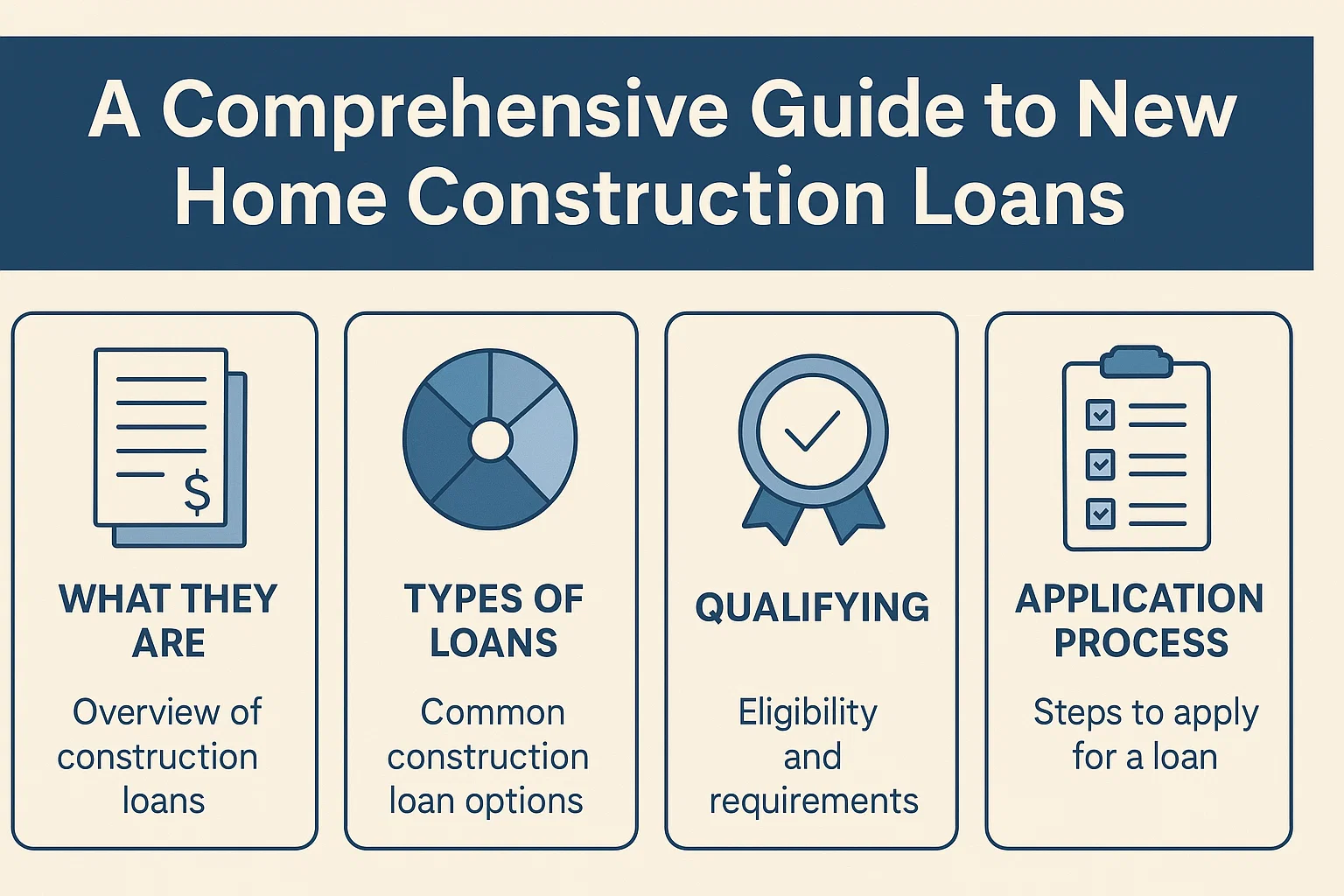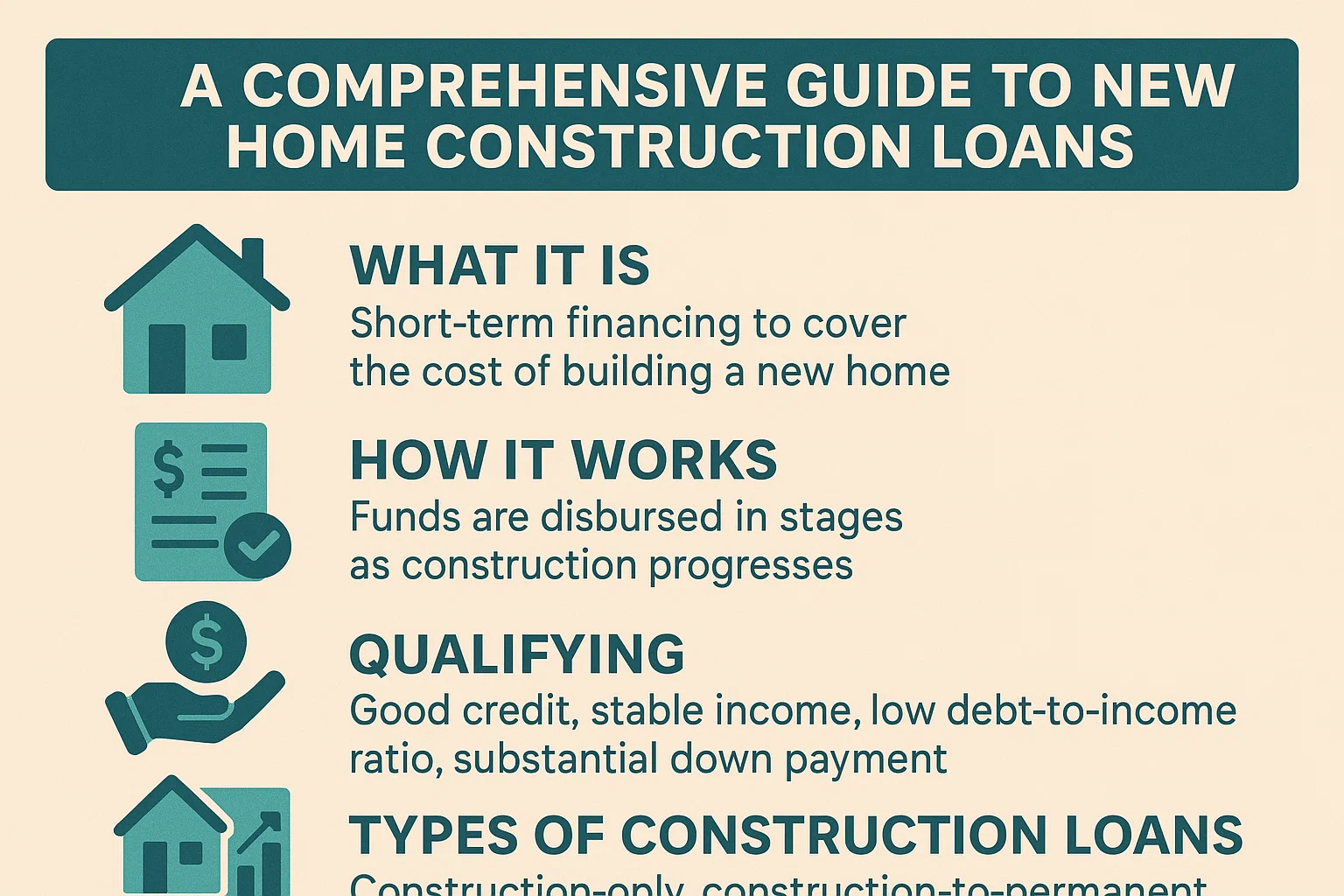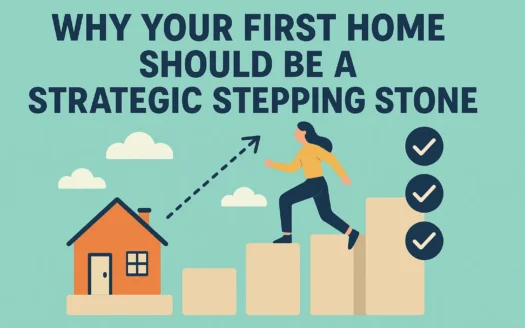A Comprehensive Guide to New Home Construction Loans

A Comprehensive Guide to New Home Construction Loans
Understanding New Home Construction Loans
Building a new home offers a unique opportunity to create a space tailored to your needs. However, financing a new construction project requires specialized knowledge, particularly when it comes to securing a new home construction loan. These loans differ significantly from traditional mortgages, with distinct terms, requirements, and processes.
What Is a New Home Construction Loan?
A new home construction loan is a short-term financing option designed to cover the costs of building a residential property. Unlike traditional mortgages, which provide a lump sum for purchasing an existing home, construction loans disburse funds incrementally to cover expenses such as:
- Land acquisition
- Design and planning
- Contractor fees and labor
- Building materials and permits
- Inspections and landscaping
Key Differences: Construction Loans vs. Traditional Mortgages
1. Terms & Payments
Construction loans typically have shorter repayment terms (1-2 years) compared to traditional mortgages (15-30 years). Borrowers only pay interest during the construction phase, with principal payments starting after conversion to a mortgage.
2. Interest Rates & Down Payments
Construction loans often have higher interest rates and require larger down payments (10-30%) due to the lender’s increased risk. Rates are usually variable, tied to market fluctuations.
3. Fund Distribution
Funds are released in stages (“draws”) as construction milestones are met. Inspectors approve each phase before disbursement.
How Do New Home Construction Loans Work?
The process involves three stages:
- Planning & Approval: Submit financial documents, construction plans, and timelines to a lender.
- Construction Phase: Funds are released incrementally as inspectors verify progress.
- Completion: The loan is either repaid in full or converted into a traditional mortgage.
Requirements for a Construction Loan
- Proof of income and strong credit score
- Detailed construction plans and timeline
- Licensed contractor with a proven track record
- Land ownership or purchase agreement
Types of Home Construction Loans
Construction-Only Loan
Covers building costs but requires separate mortgage financing upon completion.
Construction-to-Permanent Loan
Combines construction financing and a traditional mortgage into one loan with a single closing process.
Renovation Loan
Funds major home improvements, often based on the property’s projected future value.
Owner-Builder Loan
For individuals acting as their own contractor, requiring construction experience.
Government-Backed Loans
- VA Loans: For eligible military members, offering $0 down payments.
- FHA Loans: Low down payments (3.5%) for qualifying borrowers.
- USDA Loans: Supports rural home construction with 100% financing.
How to Secure a Construction Loan
- Choose a reputable builder.
- Create a detailed budget and timeline.
- Select a lender experienced in construction loans.
- Get preapproved and submit required documentation.
Is a Construction Loan Right for You?
Consider a construction loan if you plan to build a custom home. For quicker moves, explore “move-in ready” new construction homes financed via traditional mortgages.
Frequently Asked Questions
Can I use home equity for a construction loan?
Yes, home equity loans can fund construction projects and may offer tax benefits.
Are construction loan interest payments tax-deductible?
Interest during construction is often deductible, but consult a tax advisor.
Can first-time buyers get construction loans?
Yes, though requirements are stricter than for traditional mortgages.
Is securing a construction loan difficult?
The process involves more steps but is achievable with proper planning.




